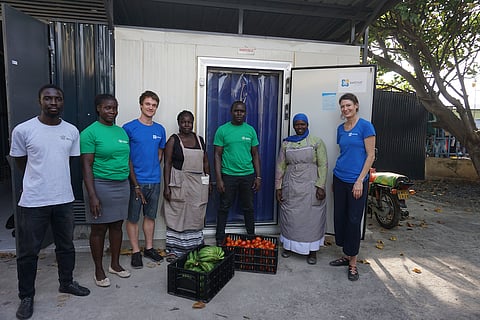

Key takeaways:
Phaesun’s Cooling-as-a-Service rental-based cold storage provides access to small-scale farmers’ agricultural produce
The PV system powers ice storage and charcoal-water evaporation to improve efficiency and reduce battery reliance
The cold storages are built using locally sourced, renewable, and recycled materials for low environmental impact
At Intersolar Europe 2025, Phaesun’s BeCool solution received The smarter E AWARD in the Outstanding Projects category. Phaesun, a Germany-based company, designs off-grid PV systems, supplies components, and develops partnerships that support autonomy for communities, organizations, and businesses.
BeCool addresses a critical challenge in Kenya’s Lake Victoria district, where naturally high temperatures lead to significant food spoilage due to the lack of accessible conventional refrigeration. This region, home to numerous small-scale agricultural traders, faces economic and social setbacks from produce loss.
Phaesun’s solution introduces solar-powered cold storage rooms, providing a reliable and sustainable cooling option. These storage units are available for rent through a Cooling-as-a-Service (CaaS) model, eliminating the need for small traders and farmers to make substantial upfront investments. The CaaS model is facilitated via a dedicated mobile application, allowing users to rent individual cooling boxes branded as SelfChill, tailored to their storage needs. These units are pre-cooled using the charcoal-water evaporation technique. Charcoal, due to its porous nature, has a high water-holding capacity and enables evaporation of water and, in turn, cooling its surroundings.
Technically, the PV systems power SelfChill to store water into ice during peak generation hours. At night or during low generation hours, the stored ice helps maintain low temperatures within the storage spaces. The charcoal-water evaporation pre-cooling enhances energy efficiency by reducing the initial cooling load, potentially lowering energy consumption. This approach reduces dependency on large battery banks and lowers operating costs.
According to Phaesun, the cold rooms are built using locally available, renewable, and recycled materials, helping reduce the environmental footprint while ensuring the design remains cost-effective and adaptable for local conditions.
